Is Hipcamp Legit? Our Hipcamp Review After Eight Years of Private Camping
Note: Advertising is how we keep this site free for you to enjoy, and we earn a commission from affiliate links that may be included in this post. Thank you for supporting Back Road Ramblers!
Tent camping, hike-in sites, RV spots, yurts, and tiny homes—one of the best parts about camping is that there’s always something out there to fit your personal camping style.
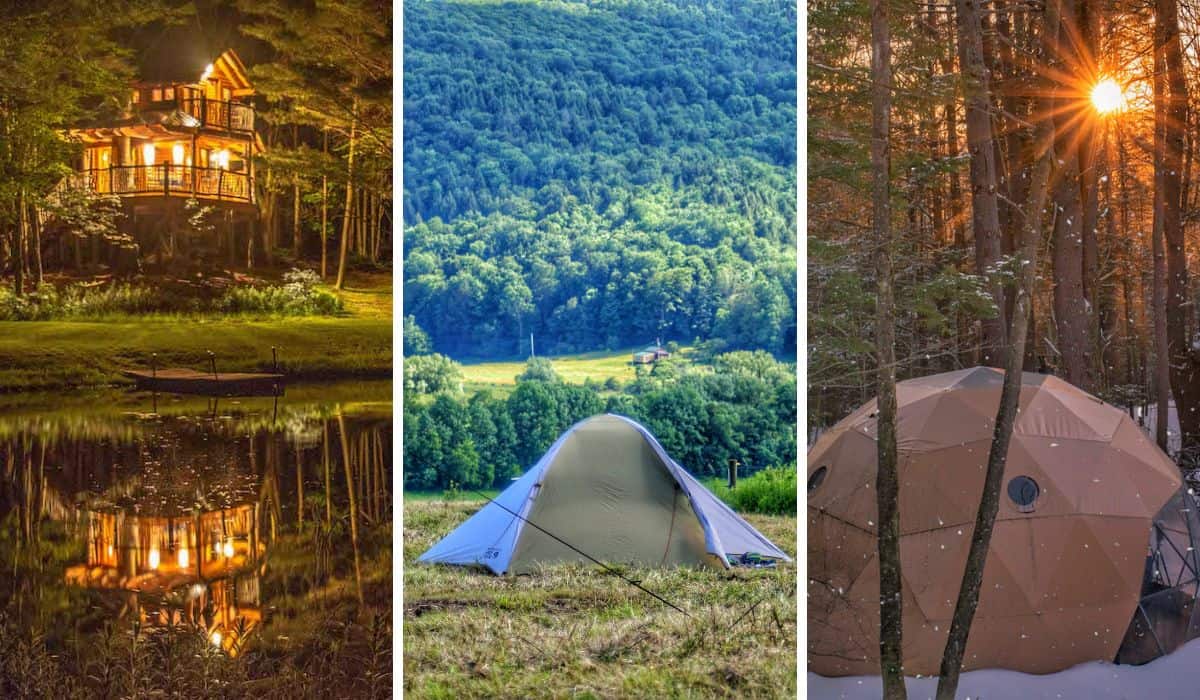
And that’s what Hipcamp is all about. One of the best apps for finding and booking campsites, Hipcamp has been unlocking access to new places to camp since 2013, offering everything from national parks to blueberry farms.
“As everyone starts planning for summer camping season, we wanted to create a resource that makes getting outside simple, straightforward, and fun,” says Hipcamp founder and CEO Alyssa Ravasio.
Hipcamp is currently the largest campsite booking platform in the US, with more than 500,000 campsites. It also allows you to find and search for public campgrounds, but those must be booked separately.
Sounds great, right? But here’s the real question:
Is Hipcamp legit? Is it safe?
I’ve been using the Hipcamp reservation system to book private campsites since 2015, and while my experience hasn’t always been perfect, it has opened up numerous new opportunities for unique and secluded camping near me.
Here’s what we love about Hipcamp, what we don’t love, and some tips for keeping safe and finding the best private campsites for your next adventure.
I’ll sprinkle in photos of some of our favorite Hipcamps, along with links to the listings in the captions.
How Hipcamp Works
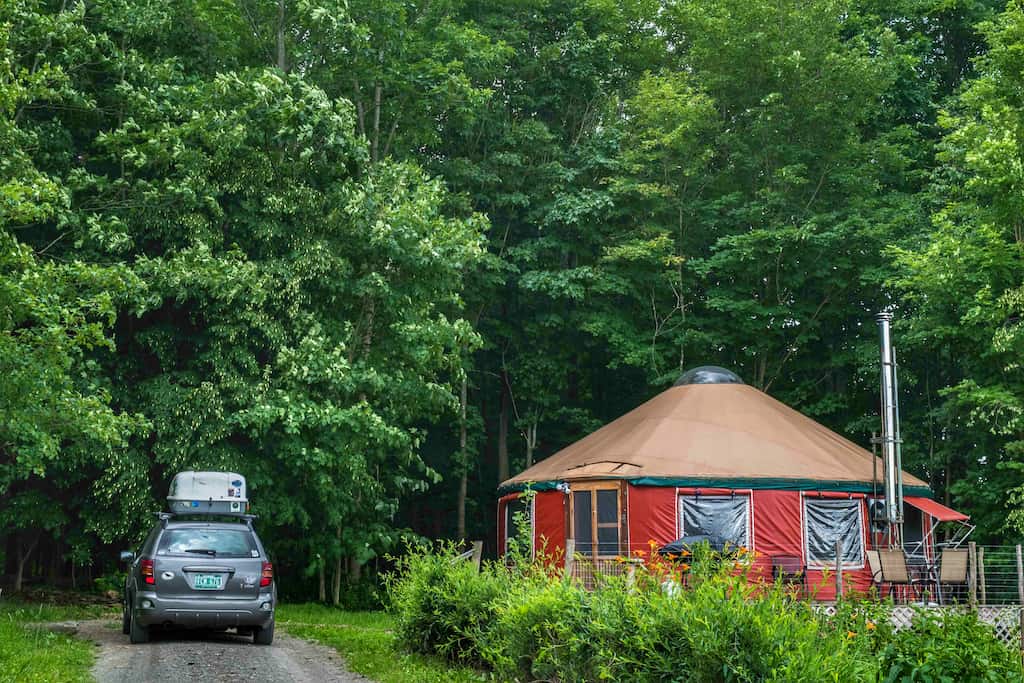
Hipcamp connects campers with private landowners who provide unique camping and glamping opportunities throughout the United States. You can choose from tent sites, RV sites, or accommodations such as cabins, yurts, and treehouses.
Using Hipcamp is a breeze.
Visit the Hipcamp website or download the Hipcamp app for iOS or Android.
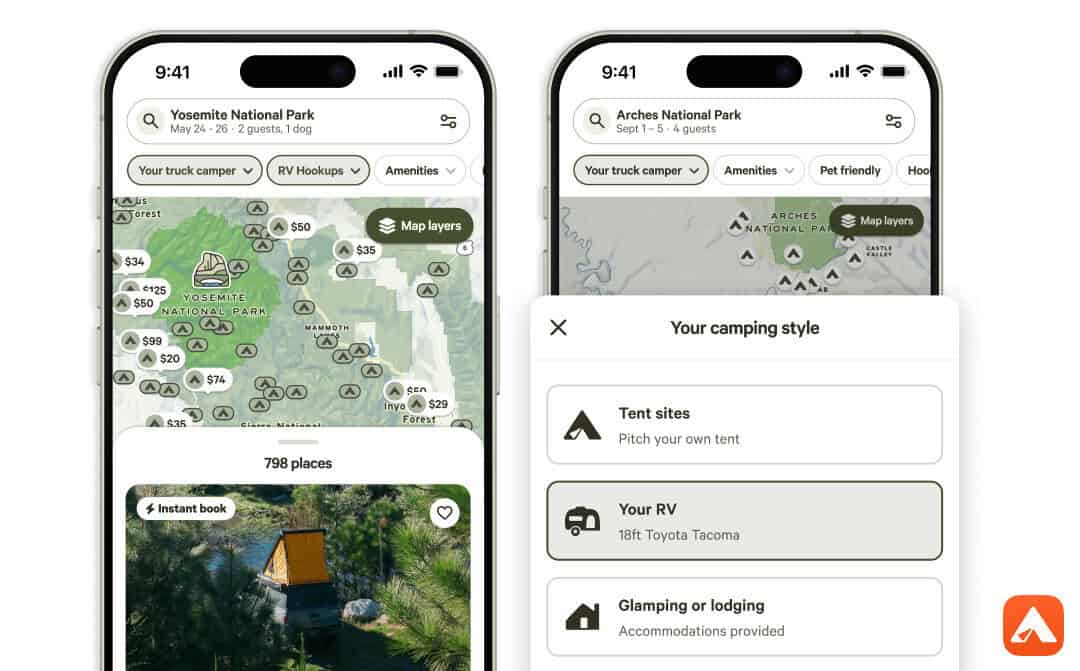
- From the Hipcamp homepage, type in the city and state you’ll be traveling to, select ‘current location’ to find camping near you, or select ‘road trip’ to find camping along your route. Add the dates you are looking for (optional) and whether you want to go camping, glamping, or RVing.
- Search the available listings to find your perfect private or public land campsite. You can add filters based on the preferences you’re looking for, such as pet-friendly camping, Wi-Fi, swimming, electricity hook-ups, and more.
- When you are ready to book a Hipcamp site, you will see one of two booking notices. Many private campsites can be booked directly and instantly on the Hipcamp platform. For some private campsite listings, you will need to ‘request to book’ by submitting your dates for the landowner’s approval. Once your booking request is approved, you will be notified via a Hipcamp message in your inbox.
- After you book your Hipcamp, you will receive the contact info, address, and directions to your home-away-from-home. Be sure to review the amenities so you know what to bring on your trip.
Sounds simple, right? Let’s look at what makes Hipcamp awesome—and where it falls short.
What We Love About Hipcamp
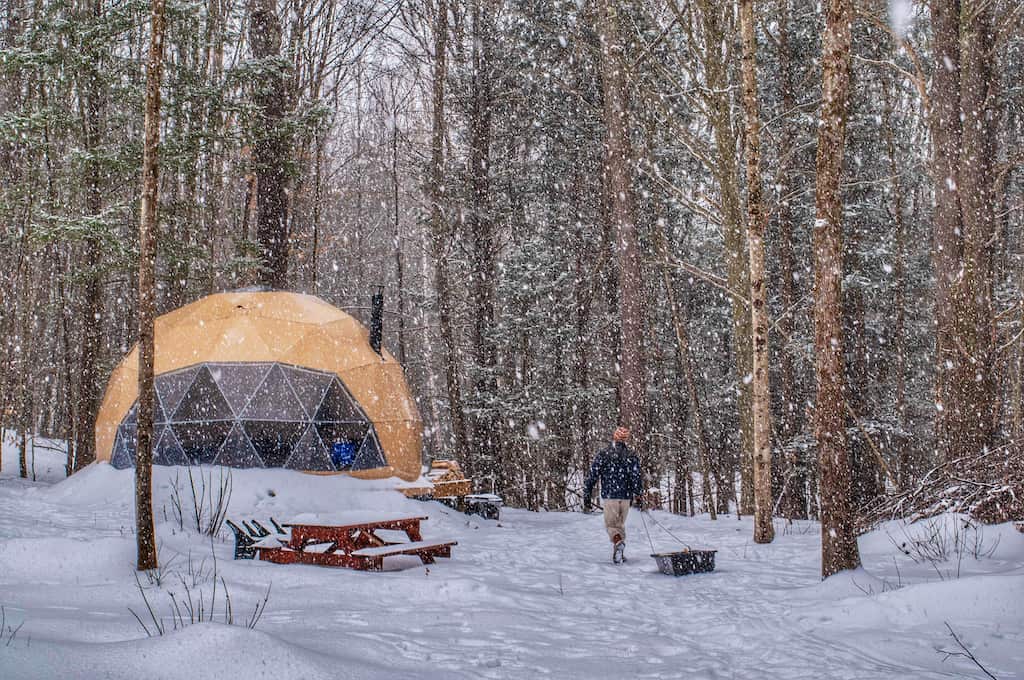
Private. Secluded. Distinctive.
Gone are the days of overcrowded campgrounds with noisy neighbors and blaring generators.
Many Hipcamp sites offer total solitude. And even when there’s more than one campsite, they’re rarely close together.
In the eight years we’ve been booking sites with Hipcamp, we’ve stayed in luxurious treehouses and yurts, tent camping spots in remote forests next to thundering waterfalls, and farmers’ fields next to herds of cattle.
Each campsite is unique to the property where it’s located, and many hosts have extras available for purchase, like fresh eggs, meat, veggies, or maple syrup.
Most campsite hosts will give you as much privacy as you want, but they also make themselves available to answer questions, give advice, or just chat if you’re interested, and we have made some great friends during many of our Hipcamp stays.
We especially love booking unique outdoor stays near popular attractions where we know the public campgrounds will be either all booked up or too crowded and noisy for comfort.
What We Don’t Love About Hipcamp
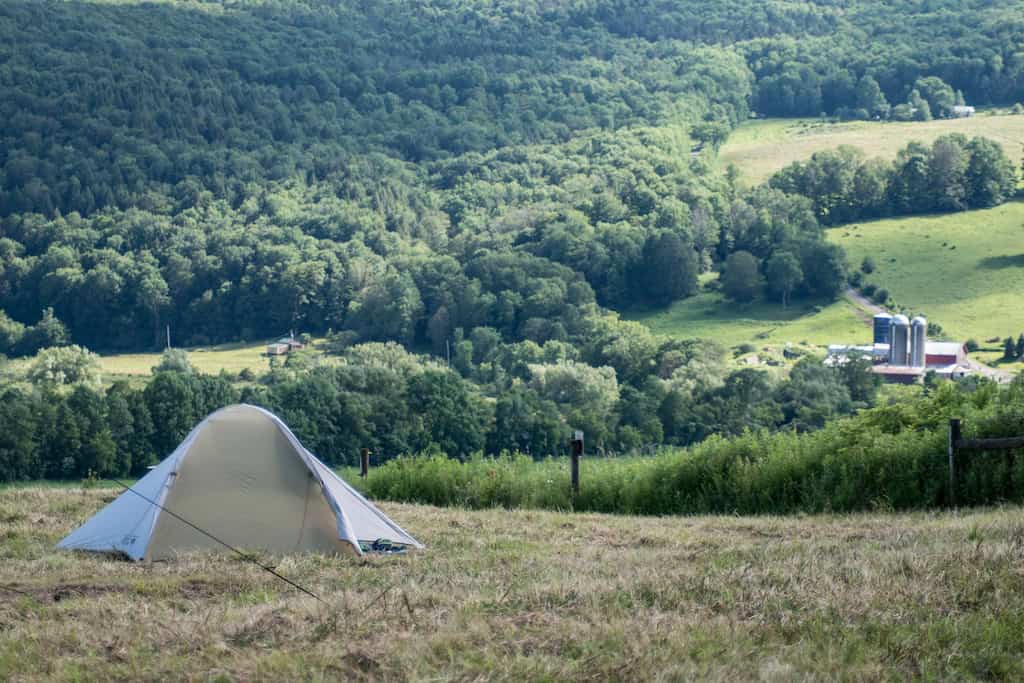
No platform is perfect, and Hipcamp has its quirks.
The downside of camping on private land?
You never know what you’re going to get.
In the years we’ve been booking campsites on Hipcamp, we’ve had a few issues:
- Campsites with bad directions (and no cell service).
- Listings created without the landowner’s knowledge (awkward!).
- Overly friendly hosts who didn’t understand boundaries.
Because Hipcamp operates in the shared economy, there’s less oversight than at traditional campgrounds. When it’s good, it’s amazing.
When it’s bad… not so much.
Pro Tips for Using Hipcamp
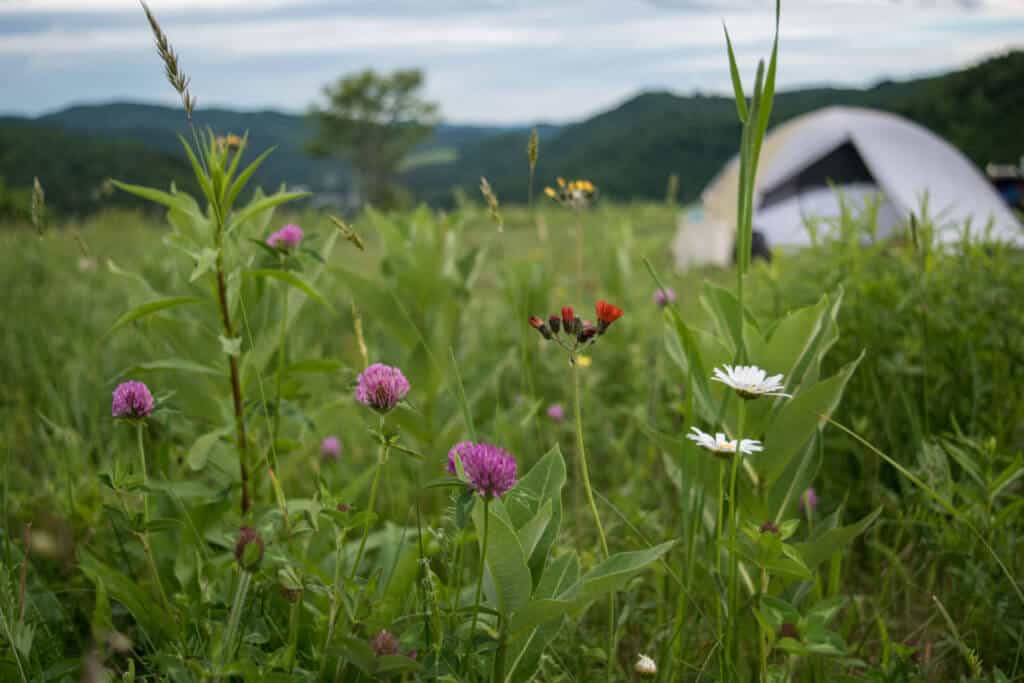
Want to avoid hiccups? Here’s how to book your next Hipcamp like a pro:
- Read the listing carefully: The campsite listing provides important information, such as the distance to walk with your gear, whether campfires are permitted, and whether facilities like toilets, showers, and potable water are available. Unlike many public campgrounds, nothing is guaranteed, not even porta-potties.
- Check reviews: It’s a good idea to choose Hipcamps that have a couple of reviews already. Here, you will glean all kinds of useful information, like whether the camping is on a busy road or if the sites are swampy or sloped.
- Contact the host: Got questions? Simply ask. Within each listing, you can contact the host to ask about specifics.
- Study the photos: The photos included in a listing are a gold mine of information and will allow you to view the layout of the campsite, check out the cleanliness of the amenities, and scope out the lay of the land.
- Review the host’s cancellation policy: Different hosts have different cancellation policies. Here’s an overview of the policies available to Hipcamp hosts. Unlike other booking platforms (such as Airbnb), Hipcamp’s service fees are non-refundable if you need to cancel.
Is Hipcamp Safe?
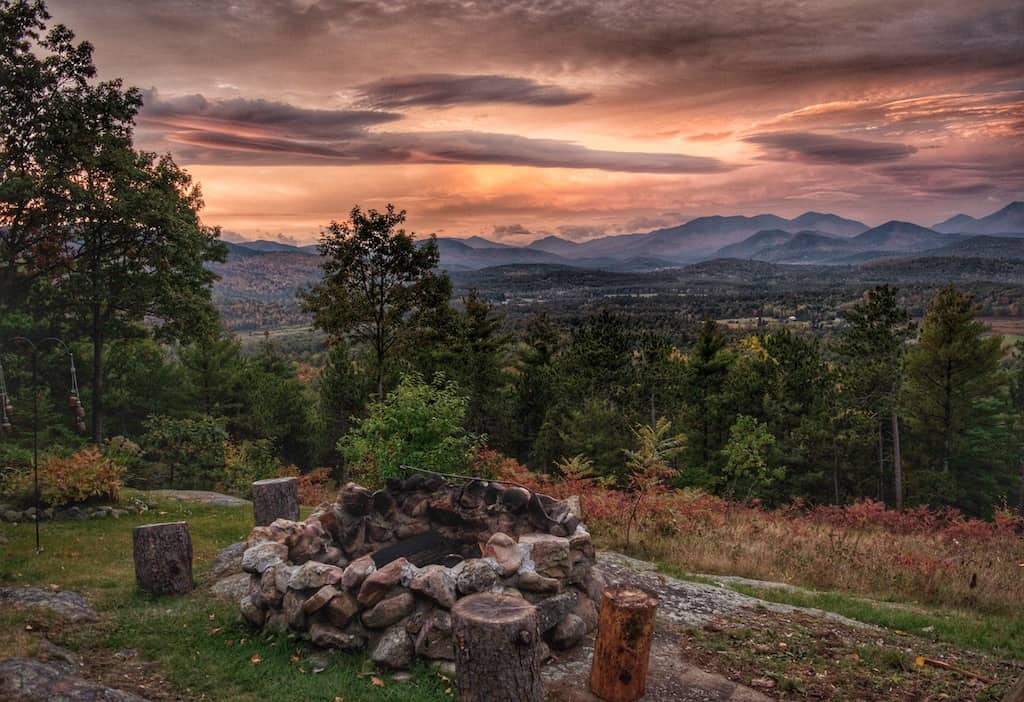
Hipcamp is a legitimate booking platform used by thousands of campers and RVers. We have stayed at 30+ Hipcamp sites, and we have never felt unsafe.
Hipcamp prioritizes safety by conducting background checks on hosts and maintaining strict standards for hosts and campers.
Hipcamp’s Inclusion Policy aims to elevate and protect diversity by promptly addressing discriminatory behavior and removing content that violates this policy. We have found the Hipcamp customer support to be prompt whenever we’ve had minor issues.
There are inherent risks to be aware of when engaging in outdoor pursuits. Here are some safety precautions to take before and during your Hipcamp adventure:
- Let someone know of your plans, including where you will be staying and when you will return.
- Pack a first-aid kit and basic emergency supplies.
- Check the weather forecast before/during your Hipcamp trip.
- Check the Hipcamp listing or contact the local municipality to determine if fires are permitted in the area where you are camping.
- Store food properly so you don’t attract wild animals to your Hipcamp.
- Always be aware of your surroundings.
Hipcamp Listing Red Flags
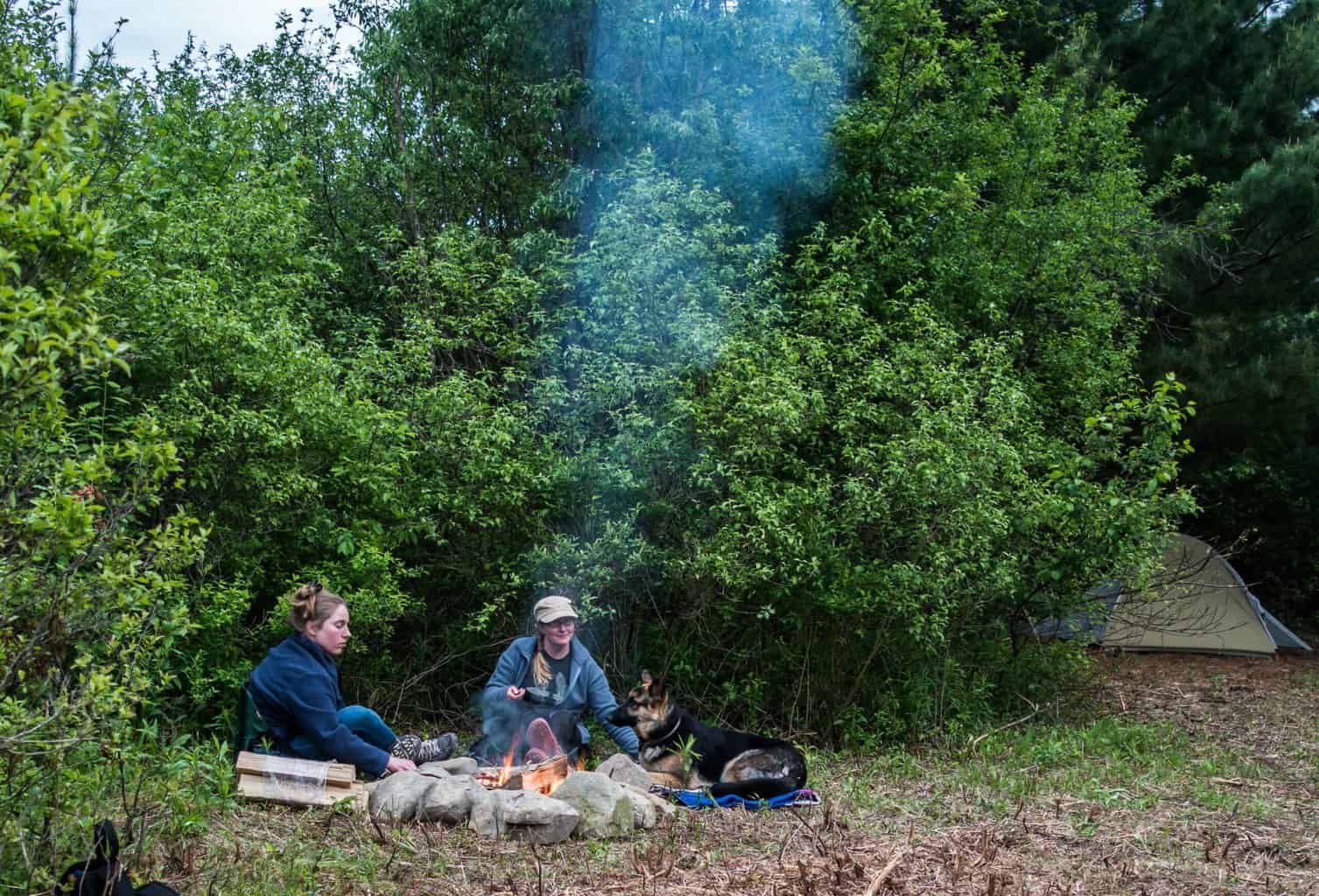
The truth is that not all Hipcamps are created equal, and there’s a chance you’ll come across properties that aren’t right for you. The good news is that you can usually minimize your disappointment by paying close attention to each listing.
Here are a few red flags to look out for when booking your next Hipcamp getaway.
- Hosts who don’t communicate or answer questions before booking.
- Hipcamp listings that are too brief or seem incomplete.
- Negative reviews.
- No reviews.
- Blurry or poor-quality photos.
How Much Does Hipcamp Cost?
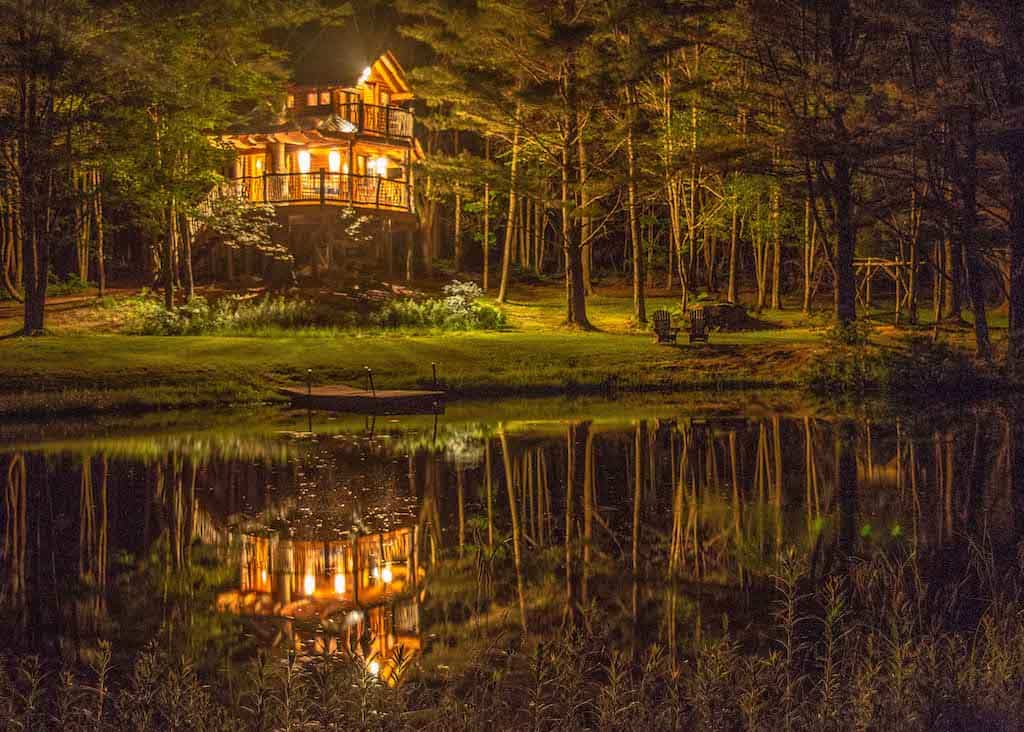
Hipcamp hosts set their own prices based on the amenities provided. A basic campsite may cost as little as $15 per night, while a fancy glamping setup can run upwards of $300.
Hipcamp tacks on a nonrefundable service fee to each listing, and most glamping sites (cabins, yurts, etc.) have an additional cleaning fee added to your total. Additionally, hosts sometimes charge for extras like firewood.
Be sure to read each listing carefully before deciding to book your stay.
Is Hipcamp Better than a Traditional Campground?
We stay in Hipcamps and public campgrounds and love them both for different reasons. We book Hipcamps for privacy or when looking for a special glamping retreat that we know traditional campgrounds can’t provide.
Traditional campgrounds provide predictability and affordability, plus there are times when we’d rather stay right inside state or national parks for easy access to trails and attractions.
So, Is Hipcamp Worth It?
Absolutely—if you read the listing carefully, so you know what to expect.
Hipcamp opens the door to incredible, off-the-beaten-path adventures. Whether you’re craving a luxury glamping retreat or a quiet forest escape, chances are there’s a Hipcamp with your name on it.
Introducing the Back Road Ramblers X Hipcamp Collection
We’ve recently partnered with Hipcamp to curate a collection of unique glamping properties in the northeastern United States. Perfect for off-season glamping trips!
Here are some of our favorite properties from the new collection:
- The Meadow and Woods Cabins in Grafton, VT: My friend Julie and I stayed here last winter, and it was so much fun. It’s dog-friendly and requires a short hike.
- Carter’s XC Ski Center in Bethel, ME: Ski right to your cabin for an unforgettable winter experience.
- Quarry Brook Farm Dome in Putney, VT, is another one of our favorite spots for winter glamping. The dome is 20 acres and has lots of great snowshoe trails.
Curious about glamping? Check out our Glamping 101 article to see if it’s right for you!
Follow us on social media for low-key outdoor adventures!
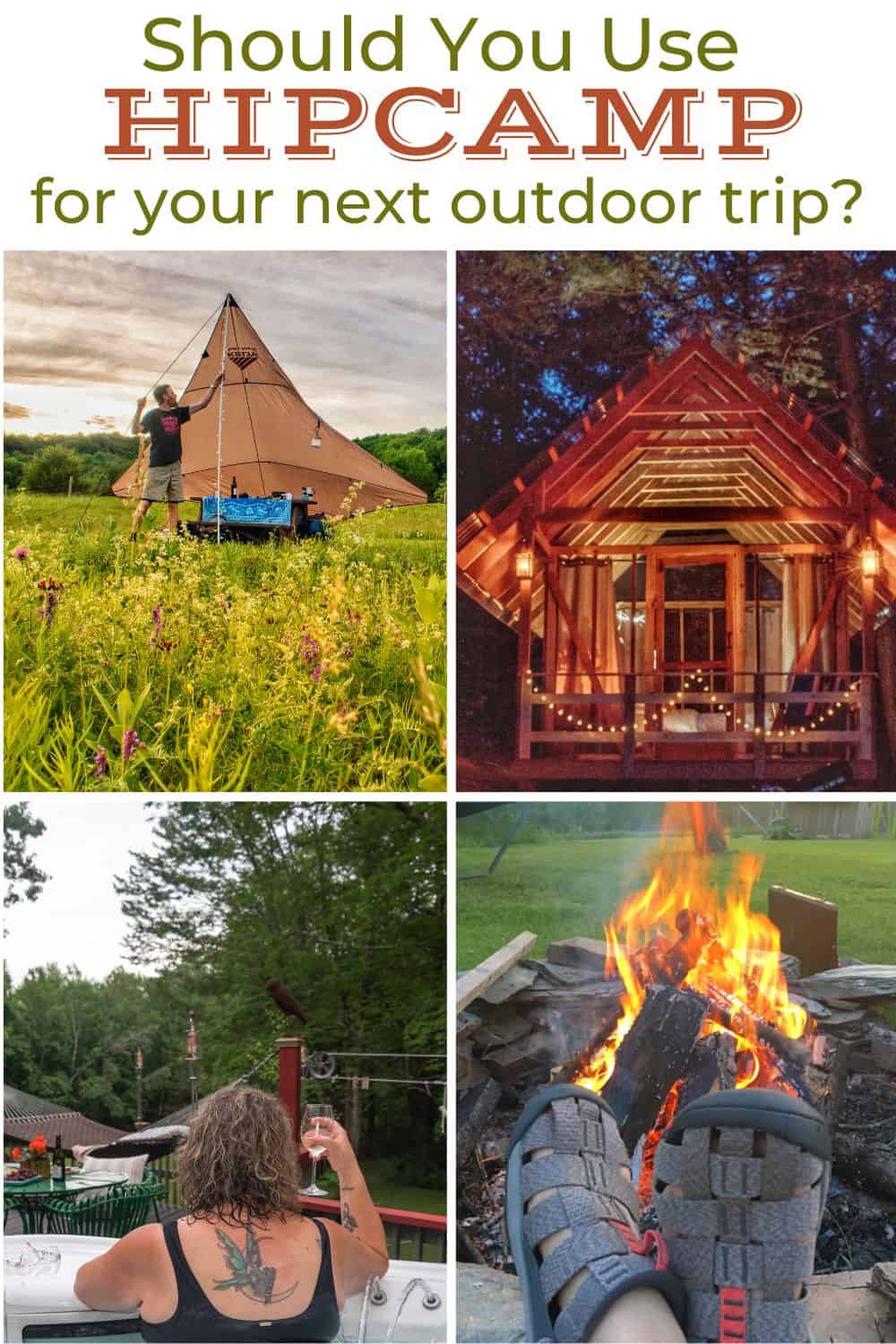

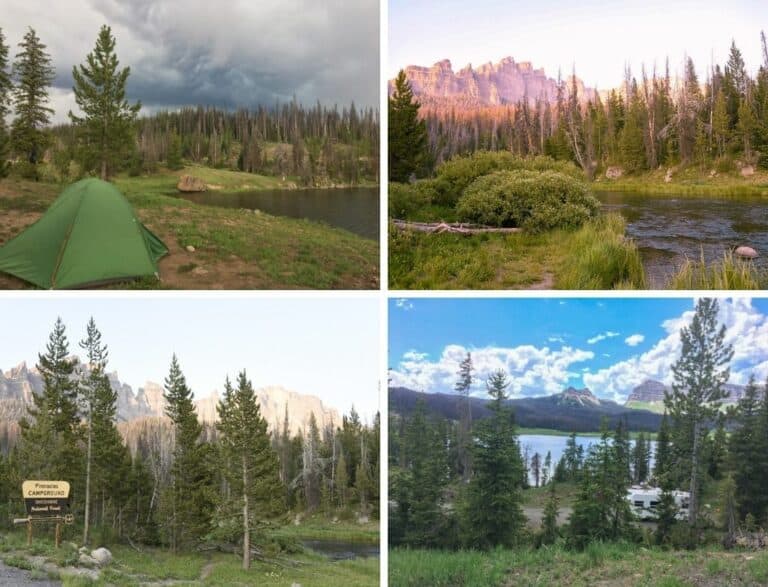
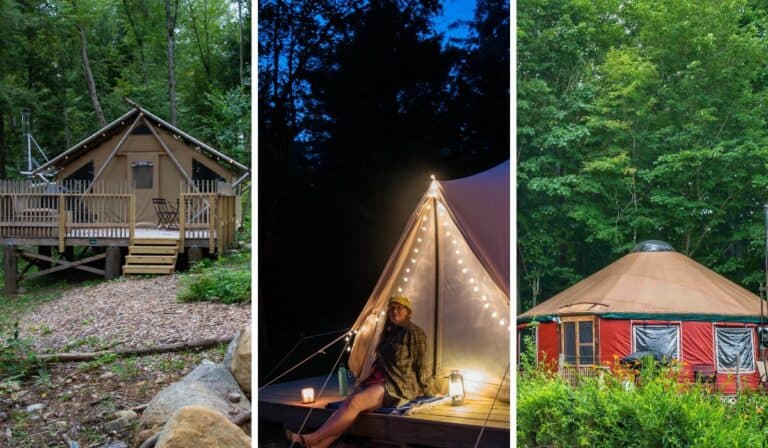
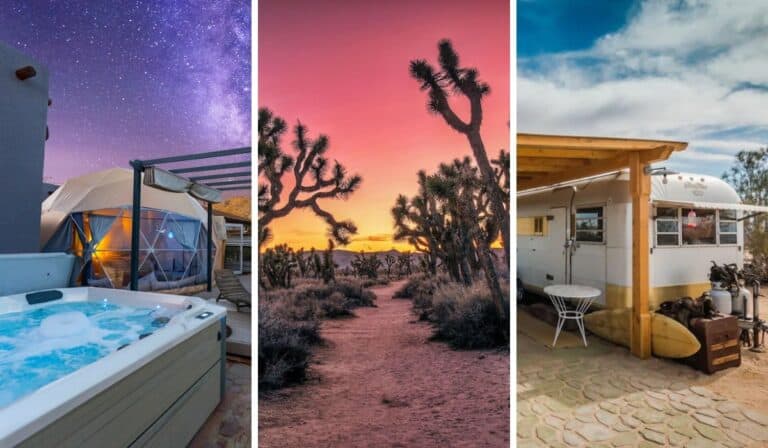
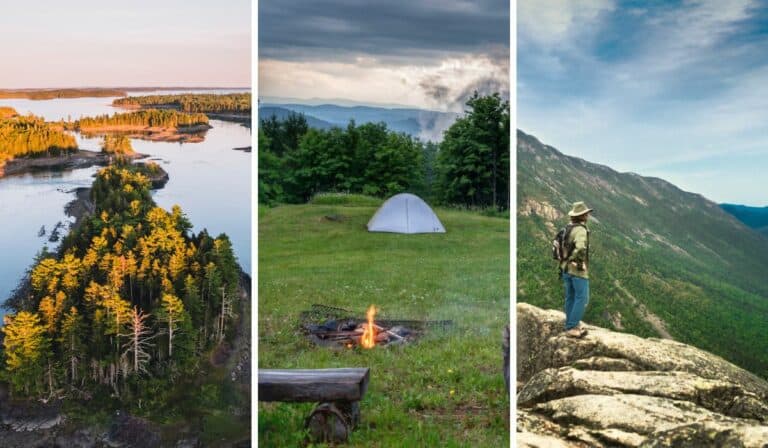
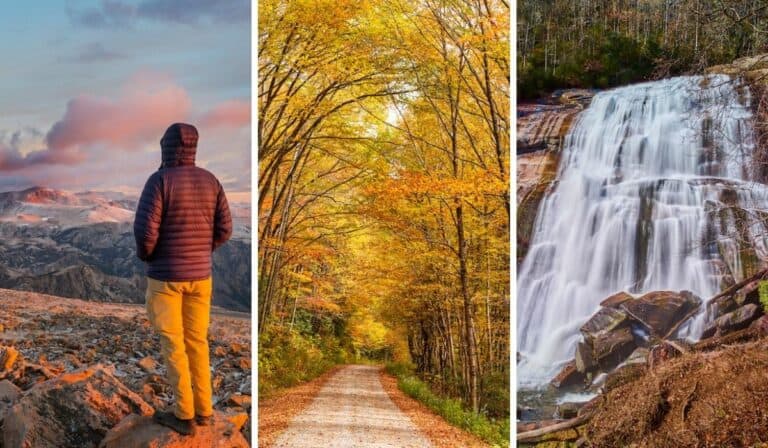
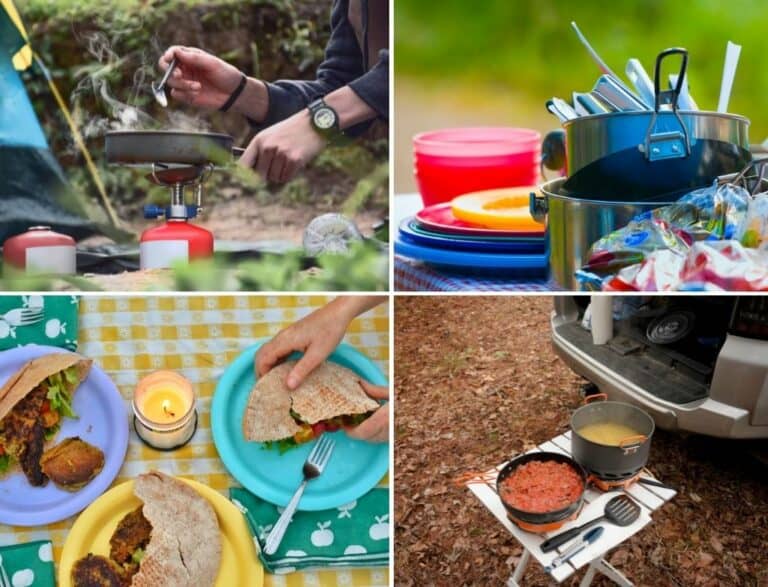
While looking for a campsite near Dosewallips State Park in Brinnon, WA, I found a thing on Hipcamp that said the nearest park to it was Scenic Beach State Park in Seabeck, WA. It also said that the distance between the two was 1 kilometer.
Welllll. Yes, perhaps, but that one kilometer is underwater. The two parks are separated by Hood Canal, and there are NO roads on the Canal.
It’s also odd that it’s in kilometers, because I’m reading this in the US.